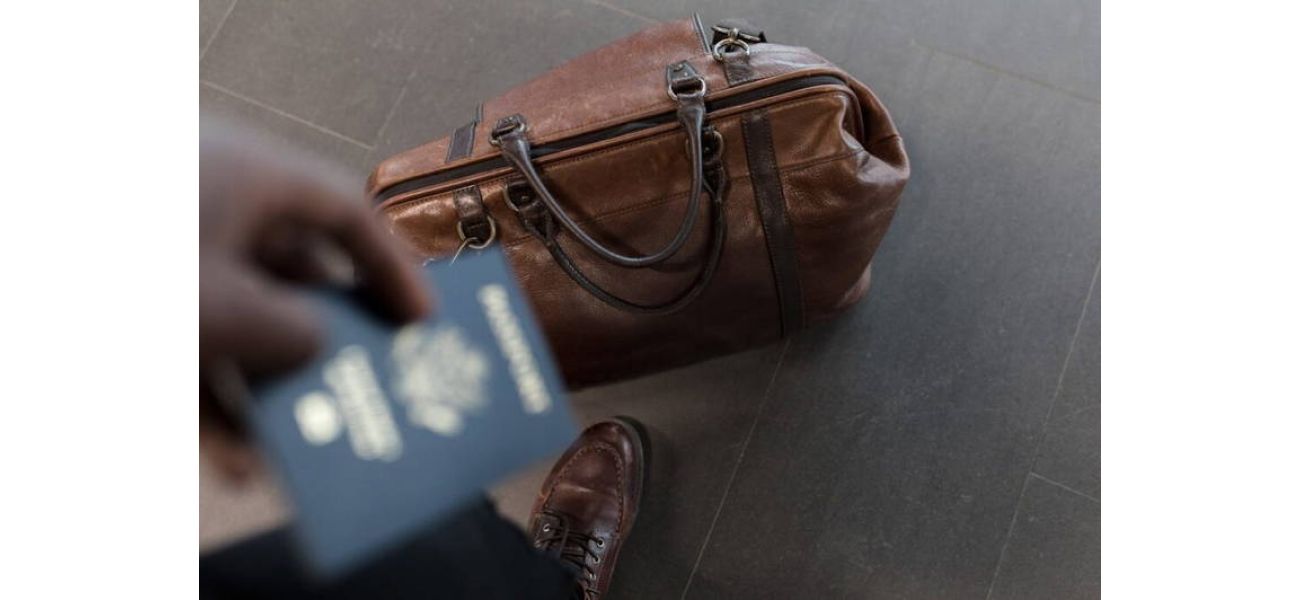Benin offers citizenship to descendants of enslaved people and confronts their past involvement in the slave trade.
Benin offers citizenship to descendants of the enslaved, a unique practice among African nations.
December 16th 2024.

In the year 2024, Benin's President, Patrice Talon, made a significant decision that would have a lasting impact on the country. He passed a new law that granted citizenship to individuals who could trace their lineage back to the slave trade. This law was a part of Benin's effort to come to terms with their role in the slave trade.
As reported by The Associated Press, Benin is one of the few African nations that have taken steps towards offering citizenship to the descendants of enslaved individuals. This is a move that is also being made by Ghana, who famously invited Black Americans to "come home" in 2019, marking the 400th anniversary of the first enslaved Africans arriving in North America in 1619.
The law works by allowing anyone over the age of 18, who is not already a citizen of an African country, to become a citizen of Benin if they can provide evidence that one of their ancestors was forcibly transported through the slave trade in Sub-Saharan Africa. This is a significant gesture, especially for Benin, as it was often a major port for the slave trade. In fact, it is estimated that 1.5 million enslaved individuals were sent out from the Bight of Benin, an area that includes present-day Benin, Togo, and part of Nigeria.
This news has spread across the Pan-African community, with many expressing interest in the possibilities that come with gaining citizenship in Benin. The Bight of Benin holds a special significance as it was a major departure point for enslaved individuals destined for Brazil, the Caribbean, and the United States.
One of the towns along the coast of Benin, called Ouidah, holds a particularly dark history as it was the site where close to one million Africans were forcefully taken onto ships and sent to various destinations. Today, it is home to many of Benin's memorial sites, including the "Door of No Return" and the "Tree of Forgetfulness."
Benin's government has made it clear that they will accept a variety of materials as proof of lineage, such as DNA tests, authenticated testimonies, and family records. One of the websites that they will be using is called "Anchoukaj," which translates to "Affiliation" in Antillean Creole. This was used by Nadege Anelka, a 56-year-old travel agent from the French territory of Martinique, to trace her roots back to Benin.
Upon arriving in Benin, Anelka felt a sense of familiarity with the people and their culture. She shared that many of them reminded her of her own grandparents, from their fashion choices to their mannerisms and mentality. This sentiment was also echoed by actor Samuel L. Jackson and his wife, LaTanya Richardson, during their trip to Benin for the documentary series "Enslaved."
Richardson shared her experience with The Guardian in 2020, stating that she saw aspects of the Benga tribe's culture in her husband's DNA. She noted that he has always had a love for the sea, and it was interesting to discover that the Benga tribe were "beach people," living at the edge of the sea. She also expressed her joy in seeing her husband in that setting.
For Anelka's citizenship to be validated, her application will go through a vetting process, and if approved, she will receive a provisional certificate of nationality valid for three years. In order to complete the process, she must visit Benin at least once within that time to gain full citizenship.
Anelka understands that she will never be considered fully Beninese in the eyes of the people, but she sees this process as a way to connect with her heritage and seek reparations for her ancestors. She believes that this is her way of reclaiming her heritage and honoring her roots. This move by Benin has also sparked conversations about other African nations that were also involved in the slave trade, and the need for formal apologies and reparations.
As reported by The Associated Press, Benin is one of the few African nations that have taken steps towards offering citizenship to the descendants of enslaved individuals. This is a move that is also being made by Ghana, who famously invited Black Americans to "come home" in 2019, marking the 400th anniversary of the first enslaved Africans arriving in North America in 1619.
The law works by allowing anyone over the age of 18, who is not already a citizen of an African country, to become a citizen of Benin if they can provide evidence that one of their ancestors was forcibly transported through the slave trade in Sub-Saharan Africa. This is a significant gesture, especially for Benin, as it was often a major port for the slave trade. In fact, it is estimated that 1.5 million enslaved individuals were sent out from the Bight of Benin, an area that includes present-day Benin, Togo, and part of Nigeria.
This news has spread across the Pan-African community, with many expressing interest in the possibilities that come with gaining citizenship in Benin. The Bight of Benin holds a special significance as it was a major departure point for enslaved individuals destined for Brazil, the Caribbean, and the United States.
One of the towns along the coast of Benin, called Ouidah, holds a particularly dark history as it was the site where close to one million Africans were forcefully taken onto ships and sent to various destinations. Today, it is home to many of Benin's memorial sites, including the "Door of No Return" and the "Tree of Forgetfulness."
Benin's government has made it clear that they will accept a variety of materials as proof of lineage, such as DNA tests, authenticated testimonies, and family records. One of the websites that they will be using is called "Anchoukaj," which translates to "Affiliation" in Antillean Creole. This was used by Nadege Anelka, a 56-year-old travel agent from the French territory of Martinique, to trace her roots back to Benin.
Upon arriving in Benin, Anelka felt a sense of familiarity with the people and their culture. She shared that many of them reminded her of her own grandparents, from their fashion choices to their mannerisms and mentality. This sentiment was also echoed by actor Samuel L. Jackson and his wife, LaTanya Richardson, during their trip to Benin for the documentary series "Enslaved."
Richardson shared her experience with The Guardian in 2020, stating that she saw aspects of the Benga tribe's culture in her husband's DNA. She noted that he has always had a love for the sea, and it was interesting to discover that the Benga tribe were "beach people," living at the edge of the sea. She also expressed her joy in seeing her husband in that setting.
For Anelka's citizenship to be validated, her application will go through a vetting process, and if approved, she will receive a provisional certificate of nationality valid for three years. In order to complete the process, she must visit Benin at least once within that time to gain full citizenship.
Anelka understands that she will never be considered fully Beninese in the eyes of the people, but she sees this process as a way to connect with her heritage and seek reparations for her ancestors. She believes that this is her way of reclaiming her heritage and honoring her roots. This move by Benin has also sparked conversations about other African nations that were also involved in the slave trade, and the need for formal apologies and reparations.
[This article has been trending online recently and has been generated with AI. Your feed is customized.]
[Generative AI is experimental.]
0
0
Submit Comment





